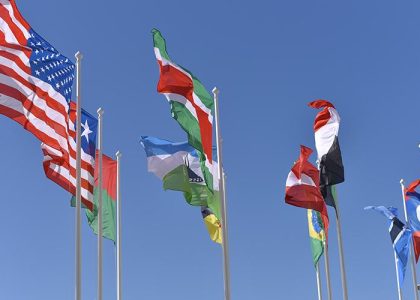Introduction
Looking for compelling journalism dissertation topics? This guide offers expert-curated ideas tailored for students pursuing journalism degrees. Whether you’re aiming for high-impact research or niche storytelling, these custom dissertation writing suggestions will help you stand out. Gain a competitive edge with focused and relevant dissertation help designed to elevate your academic success in media and communication studies.
List of Journalism Dissertation Topics
Cultures in Media
- Analyzing the Representation of Ethnic Minorities in Western News Media: A Cross-Cultural Perspective
- The Role of Global Media in Shaping Cultural Identity Among Immigrant Youth
- Media Imperialism: How Western Media Influences Local Cultures in Developing Nations
- The Evolution of Cultural Narratives in Television Sitcoms Across Different Eras
- How Social Media Influences Cultural Norms and Traditions in the 21st Century
Effects of Media on Violence
- Exploring the Correlation Between Violent Video Game Exposure and Aggression in Adolescents
- The Role of News Media in Sensationalizing Violent Crimes: Impacts on Public Perception
- Violence in Films and Its Psychological Impact on Young Adults: A Media Perspective
- Social Media Platforms and the Normalization of Violent Content: An Analytical Study
- Examining the Impact of 24/7 News Cycles on Fear and Anxiety Related to Violent Events
Media Psychology and Communication
- The Psychology Behind Clickbait: How Headlines Influence User Engagement and Trust
- Parasocial Relationships and Their Psychological Effects on Media Consumers
- Communication Patterns in Online Communities: A Study on Social Validation and Group Behavior
- The Impact of Media Framing on Audience Interpretation and Emotional Response
- Cognitive Overload in Digital Media Consumption: Challenges for Modern Communication
Censorship in Social Media
- The Ethics and Legality of Social Media Censorship in Democratic Societies
- Balancing Freedom of Speech and Harmful Content: A Case Study on Platform Policies
- Government Involvement in Social Media Regulation: Comparative Analysis of Global Approaches
- The Role of Algorithms in Automated Censorship and Its Implications for Public Discourse
- Social Media Censorship and Its Effects on Political Activism and Civil Movements
Elaborate on Media Ethics
- Ethical Journalism in the Age of Instant News: Navigating Speed Versus Accuracy
- The Role of Media Ethics in Reporting Sensitive Issues: Suicide, Crime, and Trauma
- Fake News and Journalistic Integrity: Challenges in the Digital Age
- Corporate Influence on News Reporting: Ethical Dilemmas in Media Ownership
- Investigative Journalism and Confidential Sources: Balancing Truth and Responsibility
Emotional Impacts of Social Media
- Social Media and Self-Esteem: The Influence of Likes, Shares, and Validation Metrics
- Comparative Study on Social Media-Induced Anxiety Among Teenagers and Adults
- Emotional Contagion Through Social Media Platforms: A Psychological Perspective
- The Effects of Online Negativity and Trolling on Users’ Mental Health
- Fear of Missing Out (FOMO) and Its Emotional Consequences in Social Media Users
Fan-Fiction and Fandom in the Media
- The Cultural Significance of Fan Fiction Communities in Shaping Modern Media Narratives
- Gender Representation and Queer Narratives in Online Fandom Spaces
- The Legitimacy and Legal Boundaries of Fan-Created Content in Digital Media
- Fandom as Participatory Culture: How Fans Influence Media Production and Marketing
- Emotional Attachment and Identity Formation Within Online Fandom Communities
Journalism and Freedom of Expression
- The Role of Independent Journalism in Upholding Freedom of Expression in Authoritarian Regimes
- Press Freedom Versus National Security: Ethical Challenges in Investigative Reporting
- Analyzing the State of Press Freedom in the Digital Age: Threats and Opportunities
- Whistleblowing and Journalism: Legal Protections and Ethical Responsibilities
- The Impact of Political Pressure on Journalistic Independence and Public Trust
Mass Communication Legislation in Various Countries
- Comparative Analysis of Broadcast Media Laws in the United States and the United Kingdom
- The Evolution of Internet Censorship Laws in China and Their Impact on Free Speech
- Media Regulation in the EU: Balancing Consumer Protection and Content Freedom
- Media Ownership Laws and Their Effect on Content Diversity in Australia and Canada
- Legislative Measures Against Fake News: A Comparative Study Across Southeast Asia
Media and Terrorism
- Media Coverage of Terrorist Events: Ethical Concerns and Public Reactions
- The Role of Social Media in Radicalization and Recruitment by Terrorist Groups
- Framing Terrorism in News Reports: A Critical Discourse Analysis of Global Media
- Media’s Role in Amplifying or Containing Terror-Related Panic and Fear
- Use of Visual Imagery in Terror-Related News and Its Psychological Effects
Media Companies versus Single Bloggers
- Credibility and Influence: A Comparative Study of Professional Media Outlets and Independent Bloggers
- The Rise of Personal Branding: How Single Bloggers Compete with Corporate Media
- Monetization Models in Blogging Versus Traditional Media Companies
- The Democratization of Journalism: Challenges and Opportunities in Citizen Reporting
- Ethical Accountability in News Blogging: Analyzing Standards and Practices
Post-Truth in Media
- The Post-Truth Era: How Emotional Appeals Are Replacing Facts in Modern Journalism
- Fake News and Public Opinion: Navigating the Challenges of the Post-Truth Society
- Social Media and Echo Chambers: Their Role in Reinforcing Post-Truth Narratives
- Fact-Checking in the Age of Post-Truth: Strategies and Tools for Journalists
- The Influence of Political Bias on Truth and Objectivity in News Reporting
Scientific Journalism and Its Popularity
- Communicating Science to the Public: The Role of Journalists in Bridging the Knowledge Gap
- Factors Contributing to the Rise in Popularity of Science Journalism in the Digital Age
- Evaluating the Accuracy of Scientific Reporting in Mainstream and Niche Media
- The Role of Scientific Journalism in Promoting Evidence-Based Public Policy
- Challenges in Covering Complex Scientific Issues for a Non-Specialist Audience
Social Media Negative Mental Health Effects
- The Link Between Social Media Usage and Depression Among Young Adults
- Cyberbullying and Its Long-Term Psychological Effects: A Social Media Perspective
- How Social Media Influences Body Image Issues and Eating Disorders
- The Role of Social Comparison on Instagram and TikTok in Shaping Mental Well-Being
- Digital Detox Movements: Can Reducing Screen Time Improve Mental Health?
Video Games and New Media
- The Evolution of Storytelling in Video Games: New Media as an Interactive Narrative Platform
- The Impact of Video Games on Social Behavior and Communication in Online Communities
- Video Games as Tools for Education and Awareness in New Media Contexts
- Representation of Gender and Diversity in Video Games: A Media Analysis
- Gamification of News Media: How Video Game Mechanics Are Shaping Journalism



